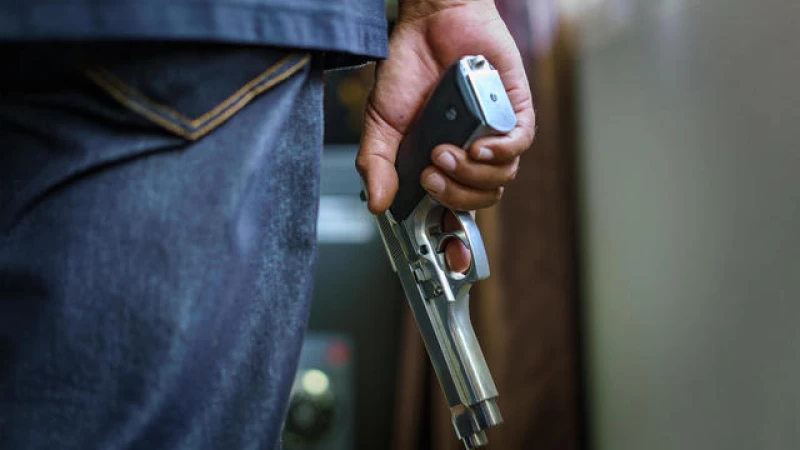California Law Banning Carrying Firearms Temporarily Blocked by Federal Judge
A federal judge on Wednesday temporarily blocked a California law that would have banned carrying firearms in most public places, ruling that it violates the Second Amendment of the U.S. Constitution and deprives people of their ability to defend themselves and their loved ones.
The law signed by Gov. Gavin Newsom in September was set to take effect Jan. 1. It would have prohibited people from carrying concealed guns in 26 places including public parks and playgrounds, churches, banks and zoos. The ban would apply whether the person has a permit to carry a concealed weapon or not. One exception would be for privately owned businesses that put up signs saying people are allowed to bring guns on their premises.
U.S. District Judge Cormac Carney granted a preliminary injunction blocking the law, which he wrote was "sweeping, repugnant to the Second Amendment, and openly defiant of the Supreme Court."
California Court Blocks Law on Concealed Carry Permits
A recent court decision in California has blocked a law that overhauled the state's rules for concealed carry permits. The law was challenged by the California Rifle and Pistol Association, and the court ruled in their favor. The decision comes in response to the U.S. Supreme Court's ruling in the New York State Rifle and Pistol Association v. Bruen case, which prompted many states to revise their own gun laws.
The court's decision stated that the constitutionality of gun laws should be evaluated based on their consistency with the nation's historical tradition of firearm regulation. The California association's president, Chuck Michel, expressed satisfaction with the ruling, stating that progressive politicians in the state were attempting to circumvent the Supreme Court's mandate from the Bruen case.
Michel further explained that the law would have made it illegal for gun permit holders to travel across town without passing through prohibited areas. He believes that the court's decision will make Californians safer, as law-abiding citizens should have the ability to defend themselves.
However, California Governor Gavin Newsom expressed disappointment with the ruling and vowed to continue advocating for stricter gun measures. He criticized the decision for allowing the proliferation of guns in places like hospitals, libraries, and children's playgrounds, which he believes should be safe spaces for everyone.
California Attorney General Rob Bonta also expressed his opposition to the ruling and stated that he plans to appeal it.
California Attorney General Files Appeal to Overturn Court Decision on Gun Control Law
The California Attorney General, Rob Bonta, has announced that he will file an appeal to overturn a recent court decision that struck down a gun control law. The law, known as SB 2, aimed to restrict the carrying of firearms in sensitive public places.
In a statement, Bonta expressed concern about the potential dangers of allowing guns in places where families and children gather. He argued that more guns in sensitive places would make the public less safe, citing supporting data.
California Governor, Gavin Newsom, who has been a vocal advocate for gun control, has also expressed his support for appealing the court decision. Newsom has signed various gun control bills during his tenure, including measures targeting untraceable "ghost guns" and the marketing of firearms to children.
The court decision was made by Judge Cormac J. Carney, a former Orange County Superior Court judge who was appointed to the federal bench by President George W. Bush in 2003.







